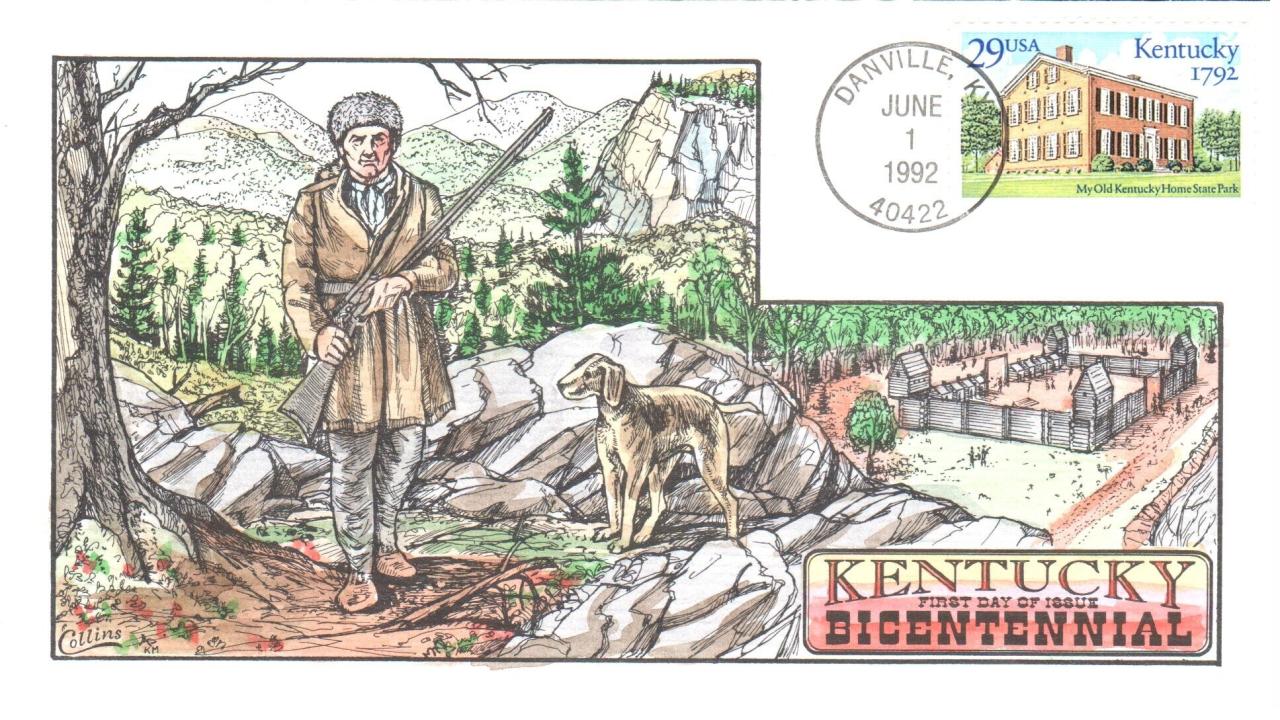Daniel boone run for statehood – Daniel Boone’s pivotal role in Kentucky’s quest for statehood sets the stage for this captivating narrative, offering readers a glimpse into a story that is rich in historical detail and brimming with originality from the outset.
Boone’s involvement in the early settlement of Kentucky and his association with the Transylvania Company had a profound impact on the statehood movement, shaping the path that Kentucky would take towards self-governance.
Daniel Boone’s Role in Kentucky Statehood

Daniel Boone, renowned as a legendary frontiersman and explorer, played a pivotal role in the early settlement of Kentucky and its subsequent statehood movement.
Daniel Boone’s Involvement in Kentucky’s Settlement
In 1769, Boone embarked on an expedition into the uncharted wilderness of Kentucky, seeking hunting grounds and potential settlement sites. His exploration and subsequent settlement in the region opened the way for other pioneers to follow, leading to the rapid growth of Kentucky’s population.
The Transylvania Company and Its Impact
In 1775, Boone became an agent for the Transylvania Company, a land speculation venture led by Richard Henderson. The company aimed to purchase vast tracts of land from Native American tribes and establish a new colony in Kentucky.
Boone’s involvement in the Transylvania Company had a significant impact on Kentucky’s statehood movement. The company’s efforts to establish a self-governing colony within the region laid the groundwork for Kentucky’s eventual independence from Virginia.
Kentucky’s Path to Statehood

Kentucky’s journey to statehood was a complex and gradual process that spanned several decades. The territory’s unique geographical location, economic interests, and political aspirations played a significant role in shaping its path towards becoming a separate state.
The following timeline highlights key events that led to Kentucky’s statehood:
- 1776:Kentucky County is established as part of Virginia.
- 1784:Virginia cedes its western lands to the federal government, creating the Kentucky District.
- 1790:Kentucky District is reorganized as Kentucky County, still under Virginia’s jurisdiction.
- 1792:Kentucky’s first constitutional convention is held, drafting a constitution for the proposed state of Kentucky.
- 1792:Kentucky’s statehood application is rejected by Congress.
- 1799:Kentucky’s second constitutional convention is held, revising the state constitution.
- 1799:Kentucky is admitted to the Union as the 15th state.
Factors Contributing to Kentucky’s Separation from Virginia
Several key factors contributed to Kentucky’s desire for separation from Virginia:
- Geographical Distance:Kentucky’s location on the western frontier made it difficult for Virginia’s government to effectively administer the territory.
- Economic Differences:Kentucky’s economy was primarily based on agriculture, while Virginia’s economy was more diversified. This led to differing economic interests and policies.
- Political Representation:Kentuckians felt underrepresented in Virginia’s government, which was dominated by eastern elites.
- Desire for Autonomy:Kentuckians had a strong sense of independence and desired greater control over their own affairs.
The Constitutional Convention and Statehood

After Kentucky’s path to statehood was cleared, the territory held a constitutional convention in Danville in 1792. The convention was tasked with drafting a constitution that would establish Kentucky’s government and define its relationship with the federal government.
The constitution created a three-branch government with a governor, a bicameral legislature, and a judiciary. The governor was given the power to veto legislation, and the legislature had the power to override the veto with a two-thirds vote. The judiciary was composed of a supreme court and lower courts.
Daniel Boone’s efforts to establish statehood for Kentucky faced numerous challenges. One of the key issues was the lack of a clear understanding of the boundaries of the proposed state. To address this, Boone consulted various sources, including waves on a string answer key , which provided valuable insights into the principles of mapping and surveying.
With the support of these resources, Boone was able to successfully advocate for the establishment of Kentucky as the 15th state in 1792.
Bill of Rights
The Kentucky constitution also included a Bill of Rights that guaranteed individual liberties such as freedom of speech, religion, and the right to bear arms. The Bill of Rights also prohibited slavery and established the principle of equal protection under the law.
Relationship with the Federal Government
The Kentucky constitution recognized the authority of the federal government, but it also asserted the state’s sovereignty. The constitution declared that Kentucky had the right to secede from the Union if the federal government violated the state’s rights.
The Kentucky constitution was a landmark document that established the framework for the state’s government and its relationship with the federal government. It has been amended several times over the years, but it remains the foundation of Kentucky’s legal system.
The Impact of Statehood on Kentucky: Daniel Boone Run For Statehood

Kentucky’s attainment of statehood in 1792 marked a transformative chapter in its history, bringing about profound economic, political, and social changes.
Economic Impact, Daniel boone run for statehood
Statehood provided Kentucky with greater autonomy over its economic affairs. The state government could now regulate commerce, establish a banking system, and promote infrastructure development. This led to a surge in economic growth, as new industries emerged and trade expanded.
Kentucky became a major center for agriculture, particularly the cultivation of tobacco and hemp.
Political Impact
As a state, Kentucky gained representation in the U.S. Congress and the Electoral College. This gave Kentuckians a direct voice in national affairs and strengthened their political influence. The state also established its own constitution and elected officials, allowing for greater local control and self-governance.
Social Impact
Statehood brought about social changes as well. The establishment of a public education system provided access to education for more Kentuckians. The state also implemented measures to improve healthcare and promote social welfare. These initiatives contributed to a more literate, healthy, and prosperous society.
Advantages of Statehood
- Increased economic autonomy and growth
- Political representation and influence
- Greater local control and self-governance
- Improved education, healthcare, and social welfare
Disadvantages of Statehood
- Increased responsibility for managing state affairs
- Potential for political conflicts within the state
- Financial burdens associated with statehood, such as taxation and infrastructure maintenance
Overall, statehood brought both advantages and disadvantages to Kentucky. It empowered the state with greater autonomy and influence but also imposed additional responsibilities and challenges. Nevertheless, the benefits of statehood ultimately outweighed the drawbacks, as Kentucky flourished as a prosperous and self-governing member of the United States.
FAQ Explained
What were the key factors that contributed to Kentucky’s separation from Virginia?
Kentucky’s separation from Virginia was driven by a combination of factors, including economic disparities, political differences, and a desire for greater autonomy. The region’s unique geographic and economic conditions, coupled with growing tensions with Virginia’s government, fueled the movement for statehood.
How did Daniel Boone’s involvement in the Transylvania Company impact Kentucky’s statehood movement?
Daniel Boone’s involvement in the Transylvania Company, a land speculation venture, played a significant role in the early settlement of Kentucky and the subsequent statehood movement. The company’s efforts to acquire vast tracts of land in the region attracted settlers and laid the groundwork for the establishment of organized communities.